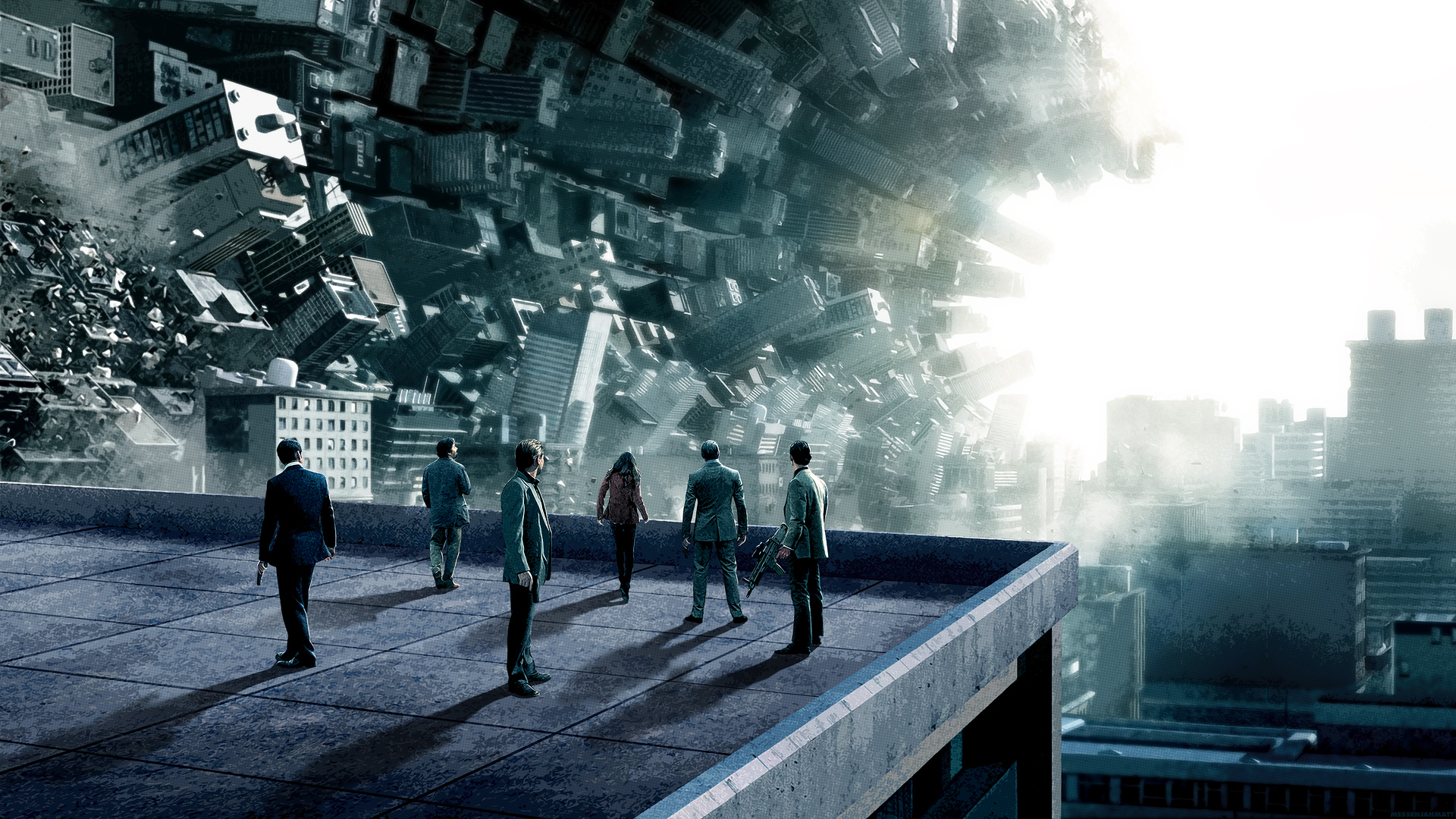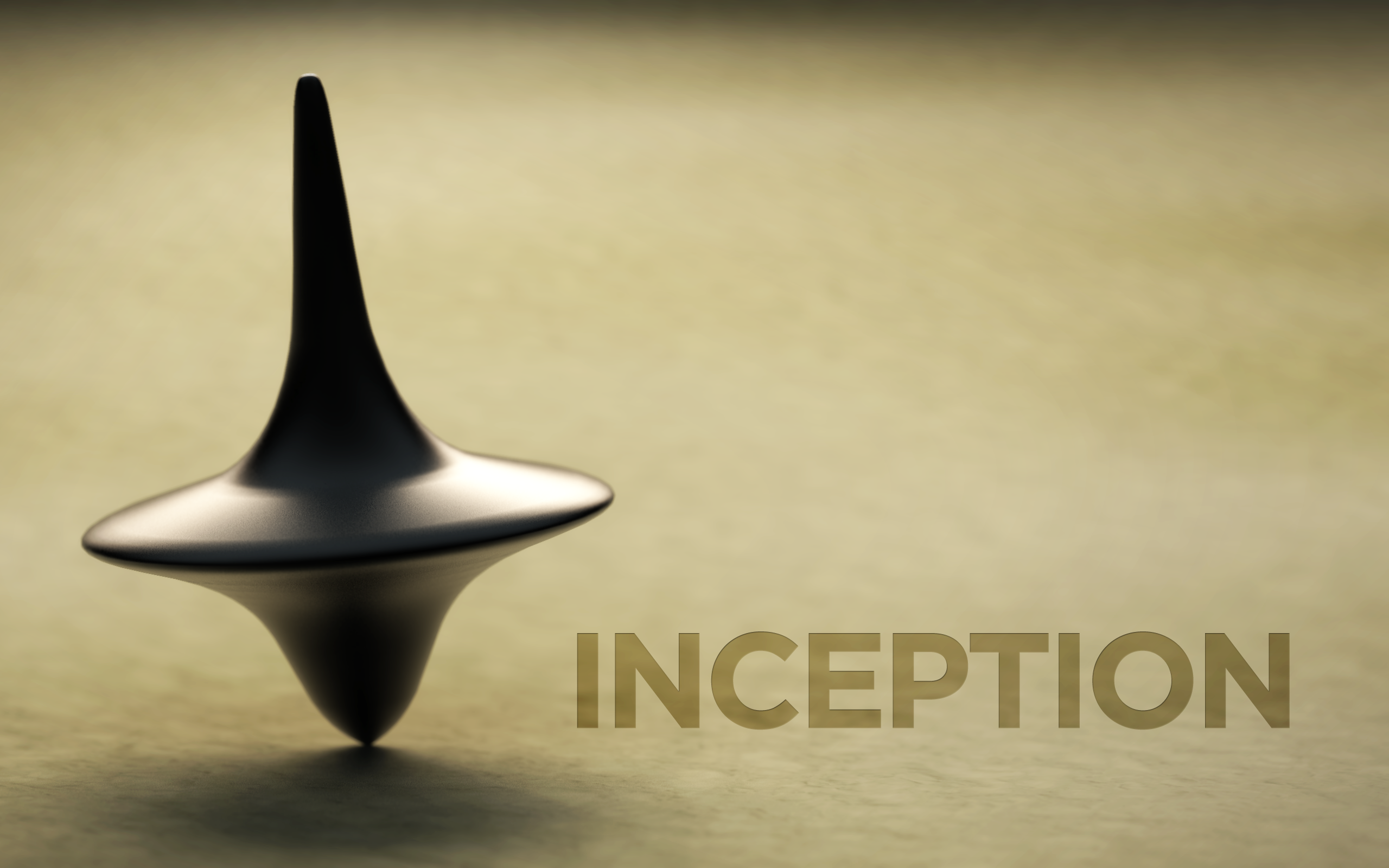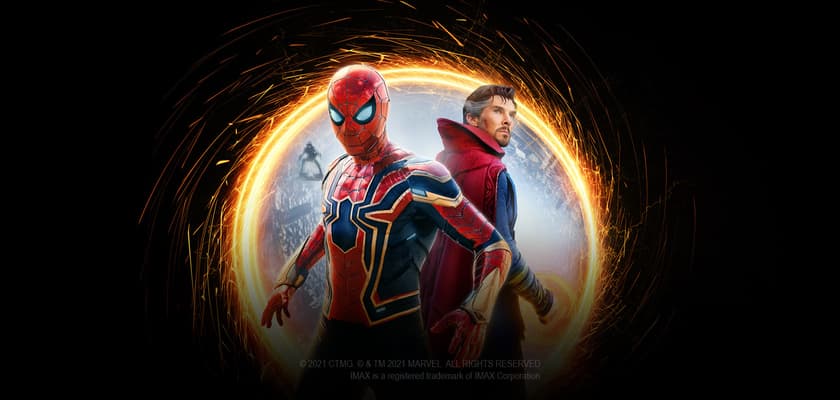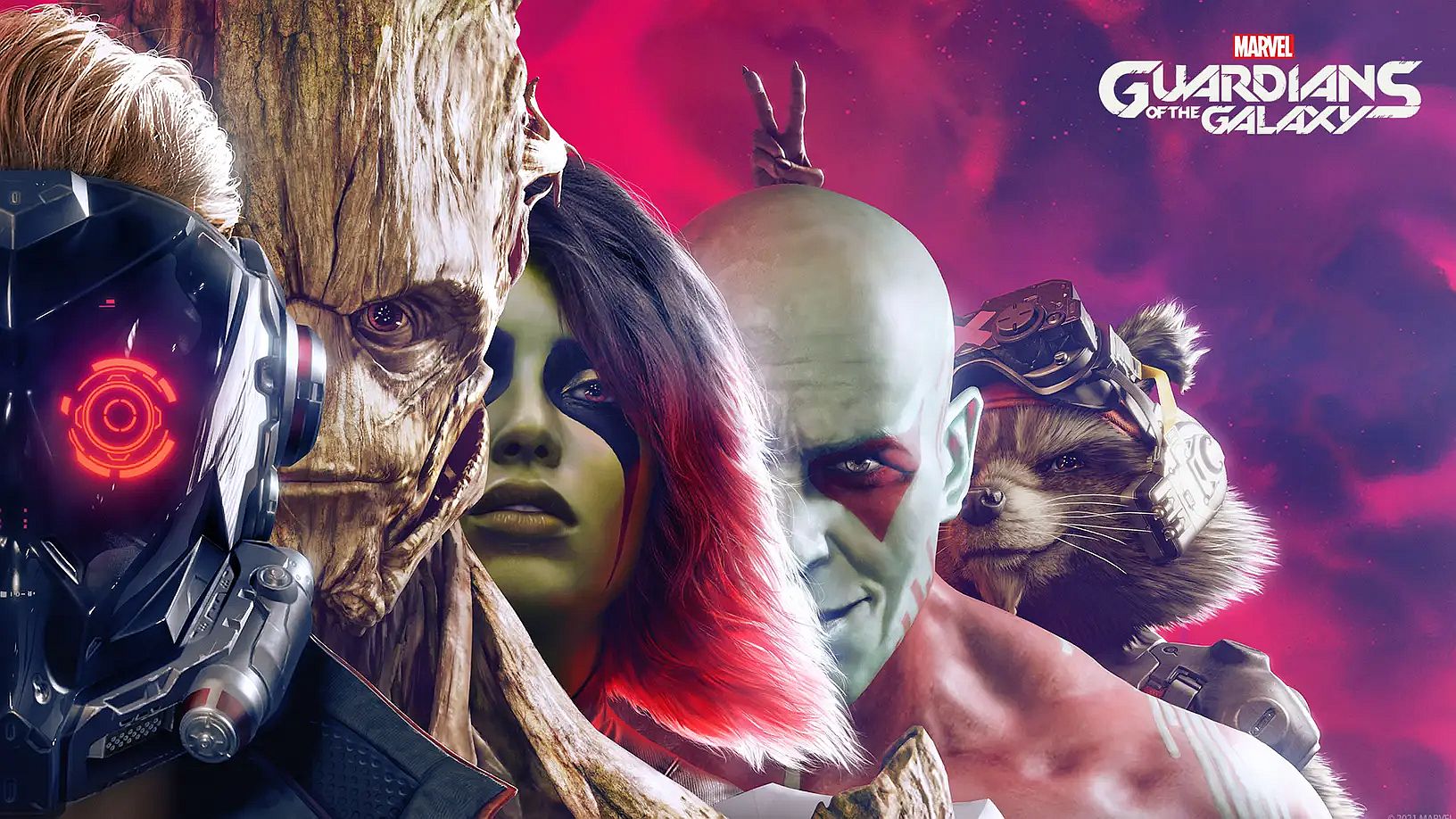SPOILER warning for Inception, The Matrix, Spider-Man: No Way Home & the Guardians of the Galaxy game
Christopher Nolan is the master at deconstructing philosophical concepts by placing questions in the minds of the audience and leaving the answers up to them. The hard science fiction elements always have a relatable emotional core, especially evident in his movies The Dark Knight, Interstellar, Memento and Inception.
Inception is a science fiction masterpiece, an expertly crafted exploration of our perception of reality. Alongside, Nolan involves the audience to form their own opinion of what makes reality real? I believe that Inception captured the zeitgeist of the era similar to the masterpiece The Matrix. Clearly, Inception takes the idea of reality being a constructed space a step forward by involving dreams and emotions.

We are always told to follow our dreams, while this is important how do we transfer the dream over to reality? Or is reality also a dream construct? We don’t have the answers to those questions as there are multiple interpretations, the subjective nature of reality is the only constant we have.
“They say we only use a fraction of our brain’s true potential. Now, that’s when we’re awake. When we’re asleep, we can do almost anything.”
– Cobb (Leonardo DiCaprio)
Dreams ‘feel’ real as they cleverly operate by the laws of nature which govern our world while also possessing a surreal quality. The dream state we possess is the only space for us to heal, process our world, our thoughts, our feelings, our anxieties etc. Dreams are a sacred space that we cannot hope to hold onto after we wake as they provide ephemeral glances of a twisted version of our perceptions, desires or memories. We can spend time discussing the significance of dreams, considering the messages they hold for us, but the answers ultimately come from within us.
Reality refers to the tangible nature of the real world, the mindful acknowledgement of the miracle of life, not just understanding it intellectually but instinctively. The truth that I am alive. Reality harnesses the missing element of dreams which is The Present, living in the present moment is the only way for us to create a true future, not a restricted version available in dreams. The distinctive ability we, as humans possess, is consciousness or self-awareness, the state of being aware of and responsive to one’s environment, equipping us with the tools to understand our experience of the infinite universe.
The basic premise of Nolan’s masterpiece Inception is that Cobb (Leonardo DiCaprio) and his team Eames (Tom Hardy) and, Ariadne (Elliot Page), Arthur (Joseph Gordon-Levitt), Saito (Ken Watanabe) are con artists. Their job is to construct a dream world to manipulate the industrialist Robert Fischer (Cillian Murphy) so Saito will ultimately facilitate Cobb’s reunion with his children. Nolan takes the classic concept of the con man a step further by making Cobb and his team dream thieves.
“In the dream state, your conscious defences are lowered, and it makes your thoughts vulnerable to theft.”
– Cobb (Leonardo DiCaprio)
At the beginning of Inception, there is an impressive action sequence, showcasing Nolan’s traditional focus on mind-bending scenes. As the architect, Ariadne has the power to manipulate real-world architecture and physics to create paradoxes like an endless staircase or curving cities above their heads. This makes the dream world function as a sort of maze to prevent the mark Fischer from realizing that he is in a dream construct so Cobb can extract the mental secrets. These secrets ultimately lead to the destruction of Fischer’s father’s business empire and the completion of the mission.

The mission hits a huge snag when the unconscious projection of Cobb’s deceased wife, Mal (Marion Cotillard), emerges from nowhere to sabotage the mission by shooting Fischer. To save Fischer from spending an eternity trapped in limbo, Ariadne convinces Cobb to take her into an unconstructed dream space.
After arriving in limbo, Cobb has an emotional confrontation with the shadow projection of his deceased wife Mal. They try to reconcile their dissonant perceptions of what reality is. Mal wants Cobb to remain in limbo so they can continue to build a life together, but Cobb resisted. Finally confronting his grief during their final argument, he chose to live in reality with his children. This catharsis finally releases Mal from Cobb’s projections and permits Cobb to let go of his demons. To live in freedom.
“Right, but it’s not your idea. The dreamer can always remember the genesis of the idea.”
– Arthur (Joseph Gordon-Levitt)

Throughout Inception, Cobb obsesses about spinning his top totem to verify reality, but at the end of the movie, he spins the top and walks away before he can verify if it stops spinning or not. Cobb’s children run towards him, and they embrace. Fade to black. This reunion is the emotional backbone of the whole movie, the only constant part of his world.
Nolan deliberately left the ending ambiguous to further empathise the subjectiveness of dreams and even reality. I believe that Cobb was still dreaming at the end. Quantum Mechanics states that an observer can change the outcome of the subject of observation, so walking away allows Cobb to prevent the truth from becoming a destructive force that will ruin his love for his children. He just wants to be with his children, as emotional connections and love is ‘reality’ enough for him. Whether he’s asleep or wide awake, Cobb’s dream came true after an arduous experience, and he’ll be happy for the rest of his days. In essence, Cobb is the cat in Schrodinger’s famous experiment stuck in the box in a state of being both dead and alive. We can never know the answer without observing it thus changing the outcome.

Nolan is playing with the metaphor of the art and process of filmmaking. Ariadne builds dream worlds just like a production designer, Eames is the actor imitating different identities, Fischer is the target of the operation and cleverly mirrors our role as a viewer and Cobb is pulling the puppet strings as the director of the mission. Is this director an unreliable narrator? After all, Inception explores the world from the viewpoint of Cobb.
Inception is rife with hints about Cobb’s mental instability and questionable trust to show us the truth. This is due to his damaging coping mechanism to suppress emotional issues increasing their harmful potency over his mental processes. This makes me believe that what he is seeing and believing to be real, is not reality. It’s merely the result of both a final break from actual reality and him forgiving himself for subjecting Mal to lies which left her permanently damaged and caused her to take her own life.
Mal is the vessel for the complex questions about reality raised in Inception and the candidate to showcase how an idea is the most resilient parasite. You can’t unthink an idea. Once an idea has taken hold in the brain, it’s almost impossible to eradicate. Cobb who has been running from his grief was only free of his shackles through facing his guilt which purged his cancerous thought patterns.

“An idea is like a virus. Resilient. Highly contagious. And even the smallest seed of an idea can grow. It can grow to define or destroy you”
– Cobb (Leonardo DiCaprio)
Mal not only thought but felt that the world she and Cobb had built was real, it fed her emotionally and made her happy. When Cobb planted the idea that “Your world is not real” in her mind, he only meant for it to wake her from limbo. Instead, allowing that idea to take root destroyed that sense of fulfilment and connection she once felt. Tragically once it was destroyed, it could never be repaired so her corrupted perception grew stronger.
Even with her complete family unit, Mal couldn’t access the emotional reality that comes with the bond with her loved ones. Because of Cobb’s inception, Mal couldn’t value love, this mirroring her skewed perception of her reality. Only her love of Cobb was real to her anymore.
Mal tirelessly strove to reach a higher state to end her crippling doubt so she could feel true happiness again. And so, thinking Cobb was lost in a faux reality, she arranged her hotel suicide to force Cobb to follow her back to his dream. The idea Cobb implanted in her led to her death, and the guilt of that act led Cobb to create a malignant shadow of her in his subconscious.
“Never recreate places from your memories, always imagine new places… Building a dream from your memory is the easiest way of losing your grasp on what’s real and what is a dream.”
– Cobb (Leonardo DiCaprio)
Everything, whether it’s a political movement or a war or a technological innovation or a heist movie about dreams, can be traced back to a single parasitic idea that appeared in someone’s head and refused to go away.
Cobb losing touch with his perception between dream and reality mirrors our experience as the viewer as it starts to blur for us, too. The reality the audience perceives on our screens is just a fabricated creation, basically a dream world. It’s very meta and impeccably done in comparison to the Matrix Resurrections.
“Dreams feel real while we’re in them. It’s only when we wake up that we realize something was actually strange.”

At the climax of the film, Mal questions Cobb and ultimately the viewer, by asking us to consider if movies are not just another type of dream state. A state seemingly following the rules of nature but where fantastic and impossible situations explode out of the screen. For example, Dr Strange controlling time using a time stone, Thanos throwing a moon at the Avengers, Grogu stopping a Rancor in its tracks or Indiana Jones surviving a nuclear blast by hiding in a fridge. Inception was ahead of its time as it’s more relevant today with the existence of the MCU multi-verse where Spider-Man: No Way Home has access to 3 different versions of Spider-Man all sharing the screen together. Which realities are real then?
This blurry view of reality is especially relevant with the advancements with VR technology or our heavy reliance on staying connected using social media platforms. These technologies are amazing creations however our grasp of reality can easily be manipulated by adverts, opinions and social conditioning. We now have the ability to constantly remake our lives, adapt them to present perfection or we could believe that the rosy pictures of others are real. Reality will never change; we can only change how we perceive what we value as ‘real’.
As an isolated teenager, my grief regarding my condition pushed me to use Comic books and Gaming as a dream world that I could escape into. I chose to follow the delusion that they were a better version of ‘reality’. The reality was too difficult for me to process so my mind deliberately created a maze to confuse me. I only escaped because I learnt that that dream world was false, even the perception of reality is a barrier to stop us from transcending our cage of limitations. This gave me the power to create my own reality, a reality that I would be proud of.

“I Will Cherish The Time That We Had, And Not Resent The Time That We Lost”
– Drax (Guardians of the Galaxy)
Inception reminds me of the game Guardians of the Galaxy, Star-Lord was provided with the opportunity to make his dream come true of reuniting with his deceased Mother Meredith Quill. This so-called ‘gift’ to Star-Lord was a twisted attempt by the dark entity Magus to corrupt people through manipulation and empty promises. Star-Lord instinctively recognised that something was wrong in this dream, that it was not real even though he desperately wanted to stay with his Mum. The Magus had corrupted this memory by constructing a saccharine puppet show of a dream reunion, the only issue was the lack of emotional connection. The only choice he was left with was to literally shoot his Mother to be released from this trap. This cathartic decision allowed Star-Lord to reconcile his grief in a positive way in comparison with Cobb.
Reality or our minds’ projection of reality is a small part of a whole. We can’t make dreams or alter the past or predict the future, living in the present moment is the only way to reach our potential without restricting ourselves. The present has always been there, and it is much better than the cloying perfection of a dream. We know deep down what is real, it’s impossible to deny it.
“Come back to reality, Dom.”
– Mal (Marion Cotillard)